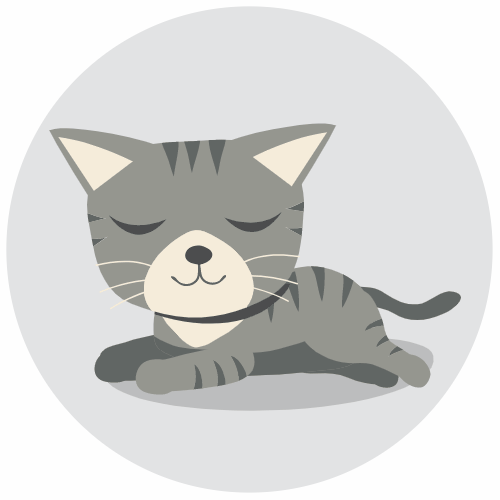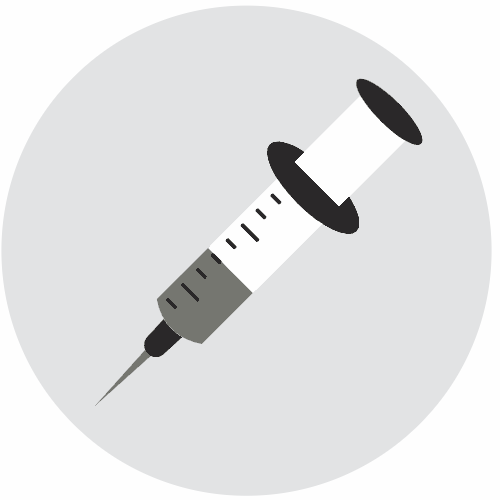At VMC of Caldwell, we know just how exciting and overwhelming it can be to bring home a new pet. Our team is here to support you on your journey to providing your new pet with a happy and healthy life. We recommend bringing your puppy or kitten in to see us as soon as possible to establish their puppy/kitten care plan. Depending on their age and previous vaccination status, we will likely recommend a series of three initial exams, each scheduled three to four weeks apart. These exams allow your veterinarian to ensure proper growth and development, immunity, and socialization for your new puppy or kitten.
First Exams and Vaccinations
Your veterinarian will develop a protocol for your pet’s first exams and vaccinations. Puppy and kitten care exams are generally the same for most pets, but may differ slightly depending on your pet’s age, if they have received previous vaccines, and their lifestyle.
EXAM ONE
The first exam with is usually scheduled at eight weeks old, but if your pet is under one year old, their initial exam with us is considered “Exam One.”
Kitten Care
- FVRCP (Feline Viral Rhinotracheitis Calicivirus, Panleukopenia) vaccine #1
- Deworming #1
Puppy Care
- DA2PP (Distemper, Adenovirus, Parvovirus, Parainfluenza) vaccine #1
- Deworming #1
Exam Two
Three to four weeks following exam one, a second exam will be scheduled. This usually occurs around twelve weeks of age.
Kitten Care
- FVRCP vaccine #2
- Deworming #2
Puppy Care
- DA2PP vaccine #2
- Leptospirosis vaccine #1
- Bordetella vaccine #1
- Deworming #2
Exam Three
As your pet will now be around sixteen weeks of age, the veterinarian will perform a third and final puppy/kitten exam. At this time the veterinary team will also begin discussing the next steps in your pet’s healthcare, such as their spay/neuter procedure, year-round parasite prevention, and future annual exams.
Kitten Care
- FVRCP vaccine #3
- FeLV (Feline Leukemia Virus) vaccine
- Rabies vaccine
Puppy Care
- DA2PP vaccine #3
- Leptospirosis vaccine #2
- Bordetella vaccine #2
- Rabies vaccine

Spaying and Neutering
At Veterinary Medical Center of Caldwell, we recommend spaying and neutering dogs and cats to optimize their health. Your veterinarian will discuss this procedure with you when the time is right, depending on your pet’s health, breed, and age. We are more than happy to answer any questions or concerns you may have regarding this routine procedure.
HOW DO I SET A POTTY TRAINING SCHEDULE?
- First thing in the morning
- Last thing at night
- After spending time in a crate
- Upon waking up from a nap
- After eating or drinking
- Time between potty brakes
should be no more than 2-4 hours
HOW DO I CRATE TRAIN MY PUPPY?
- Dogs like clean “home” areas and are less likely to have accidents
- Place crate near exterior door for quick relief
- The crate should be big enough for your puppy to stand up, turn around, and lay down
WHEN SHOULD I REINFORCE GOOD BEHAVIOR?
- Don’t scold your puppy for having an accident
- Praise them for doing the right thing
- Reward them with treats, pats, and attention
How do I get my puppy to stop bad behavior?
WHAT CAN MY PUPPY CHEW ON?
- Chewing is a calming mechanism for puppies
- Keep chewing toys around the house; when they start to chew on toys instead of household objects, give them praise
HOW DO I STOP MY PUPPY FROM BARKING?
- Scolding your puppy when they bark can make it worse; instead, ignore barking and praise quiet
- Training your dog to sit helps them fight impulsive barking when they want something
HOW DO I STOP MY PUPPY FROM BEGGING AT THE TABLE?
- Feed them first before you eat
- Create a cozy “go-to” spot near the table where they can be comfortable
- Praise them with treats when they don’t beg
How do I feed my puppy?
HOW OFTEN DO I FEED MY PUPPY?
Please discuss feeding schedule and food recommendations with your veterinarian.
WHAT FOOD SHOULD I FEED MY PUPPY?
- Look for AAFCO guidelines
- Look for age and health specific formulas
- Ask your vet for tailored recommendations
WHAT ARE HARMFUL FOODS FOR PUPPIES?
Dairy, chocolate, grapes, raisins, onions, garlic, and sugary foods, snacks, or desserts
WHAT THINGS SHOULD I BUY FOR A KITTEN?
- Scratch posts (helps preserve furniture!)
- Litter boxes, cat carriers, and food and water bowls
- Stain and odor remover
WHAT SHOULD I MOVE OUT OF THE WAY?
- Toxic plants
- Cleaners and sprays
- Any dog food that might be in the house
HOW CAN MY CAT BE COMFORTABLE?
- Bed and blanket
- Small, cozy space
- Grooming supplies
- Pheromone products
How should I play with my kitten?
HOW DO I PLAY SAFELY WITH MY KITTEN?
- Use balls, jingles, anything on a string, and cotton chew toys
- Avoid “play” with your hands to avoid injury when full grown
WHAT ARE THE BENEFITS OF PLAYING WITH YOUR KITTEN?
- Strengthens your bond with your kitten
- Allows them to release energy that could lead to damage
- Builds trust and comfort for them within a new home
HOW OFTEN SHOULD I PLAY WITH MY KITTEN?
- 20+ minutes of play per day
- Set aside at least two times a day preferably early in the morning and late at night
How do I feed a kitten?
HOW OFTEN SHOULD I FEED MY KITTEN?
Please discuss feeding schedule and food recommendations with your veterinarian.
WHAT SHOULD I FEED MY KITTEN?
- Look for AAFCO guidelines
- Look for age and health specific formulas
- Ask your vet for tailored recommendations
WHAT ARE HARMFUL FOODS FOR KITTENS?
- Raw meats, eggs, raw fish
- Grapes, chocolate, and dairy
- Raisins
- Onions
- Garlic





